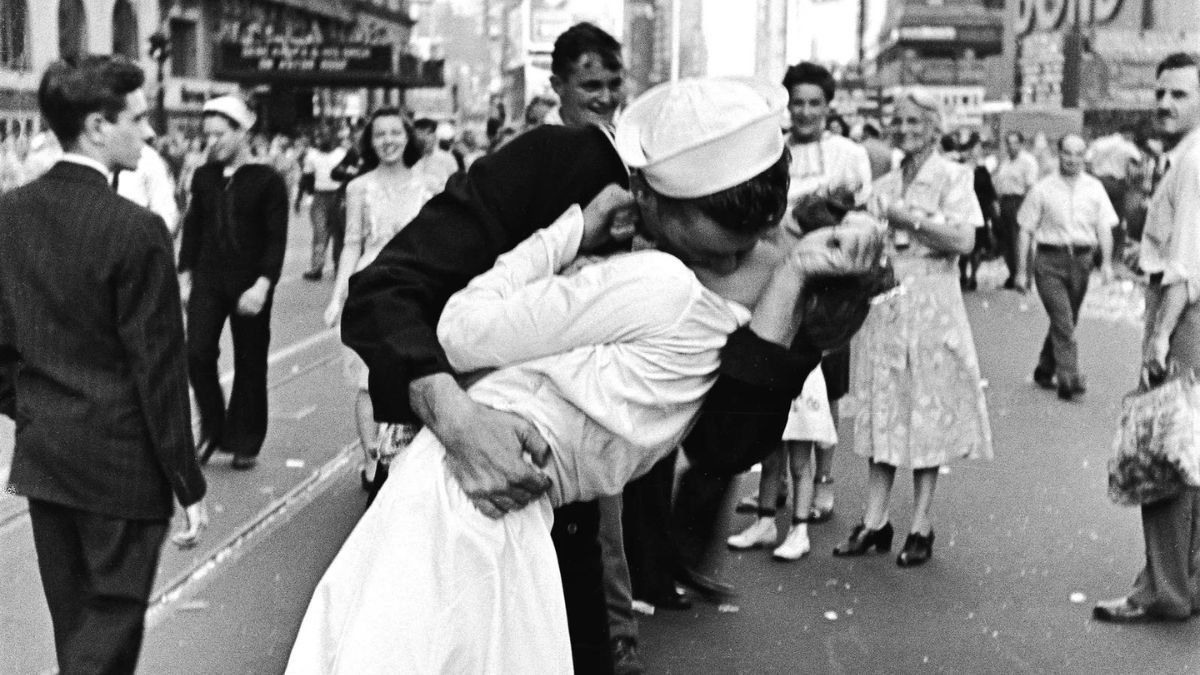

Rewriting History in Real Time
A ban and then a swift unban by Veterans Affairs over a famous photo shows the vulnerability of truth on the internet.
03/25/24
John Stonestreet Jared Hayden

Last month, a memo from the Department of Veterans Affairs banned the famous Times Square V-J Day kiss photo from all department facilities in order “[t]o foster a more trauma-informed environment that promotes the psychological safety of our employees and the Veterans we serve. … [C]ooperation in this matter is vital,” the department said as part of its “broader efforts to promote a culture of inclusivity.”
Just hours later, VA Secretary Denis McDonough unbanned the photo, claiming that the memo had been rescinded and should not have been sent out. The same day, “fact-checkers” tried to cover up the VA’s flub by claiming the Biden administration had not banned the photo but only requested its ban.
This story is just the latest example of how the ever-changing, endlessly editable nature of the internet makes telling the truth more and more optional. By blurring the lines between true and false, the internet has made it easier for institutions like the U.S. government to use doublespeak, emboldening them to rewrite history in real time.
Have a Follow-up Question?
Related Content

© Copyright 2020, All Rights Reserved.














